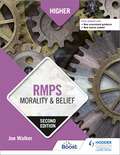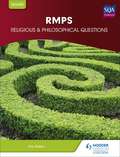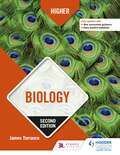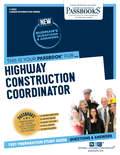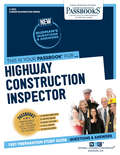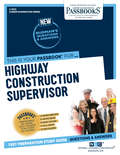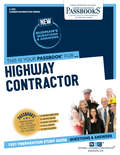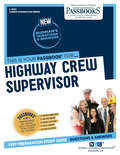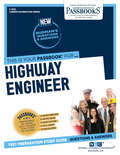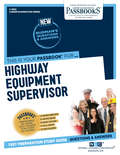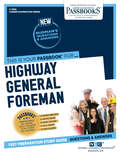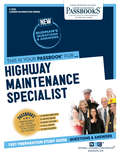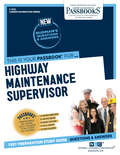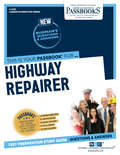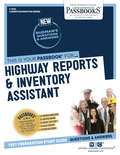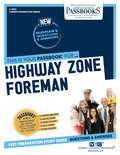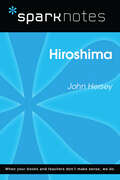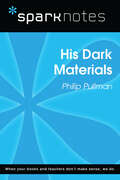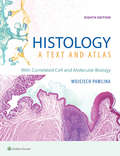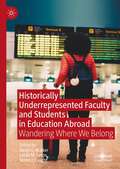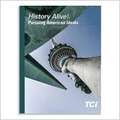- Table View
- List View
Higher RMPS: Morality & Belief, Second Edition
by Joe WalkerExam Board: SQALevel: HigherSubject: RMPSFirst Teaching: August 2018First Exam: June 2019The only resource for RMPS at Higher level, by a bestselling author and expert in the field. Completely updated with the latest SQA assessment changes.This book provides comprehensive coverage of the updated Higher in Religious, Moral and Philosophical Studies, but is also ideal for students across Scotland studying key topic areas in Morality and Belief as part of the broad general education and the senior phase of RME.- Written in a lively, accessible and engaging style that reflects real-life situations and moral issues- Highlights the importance of dealing with varieties of belief within religious traditions- Deals with up-to-date contemporary and topical issues in a highly practical manner
Higher RMPS: Morality & Belief, Second Edition
by Joe WalkerExam Board: SQALevel: HigherSubject: RMPSFirst Teaching: August 2018First Exam: June 2019The only resource for RMPS at Higher level, by a bestselling author and expert in the field. Completely updated with the latest SQA assessment changes.This book provides comprehensive coverage of the updated Higher in Religious, Moral and Philosophical Studies, but is also ideal for students across Scotland studying key topic areas in Morality and Belief as part of the broad general education and the senior phase of RME.- Written in a lively, accessible and engaging style that reflects real-life situations and moral issues- Highlights the importance of dealing with varieties of belief within religious traditions- Deals with up-to-date contemporary and topical issues in a highly practical manner
Higher RMPS: Religious & Philosophical Questions
by Joe WalkerThe only resource for religious and philosophical questions at Higher level, by a bestselling author and expert in the field.Joe Walker's new full colour book provides comprehensive coverage of the newly designed CFE Higher in Religious, Moral and Philosophical Studies, but is also ideal for students across Scotland studying key topic areas in Religious and Philosophical Questions as part of the broad general education and the senior phase of RME. The book:Offers a lively, accessible and engaging style with appropriate humour that reflects real-life situations and moral issuesHighlights the importance of dealing with varieties of belief within religious traditionsDeals with up-to-date contemporary and topical issues in a highly practical manner
Higher RMPS: Religious & Philosophical Questions, Second Edition
by Joe WalkerExam Board: SQALevel: HigherSubject: RMPSFirst Teaching: August 2018First Exam: June 2019The only resource for RMPS Religious and Philosophical Questions at Higher level, written by a bestselling author and expert in the field. Completely updated for the 2018 SQA specification.This book provides comprehensive coverage of the newly designed CFE Higher in Religious, Moral and Philosophical Studies. It is also ideal for students across Scotland studying key topic areas in Religious and Philosophical Questions as part of the broad general education and the senior phase of RME.- Offers a lively, accessible and engaging style with appropriate humour that reflects real-life situations and moral issues- Highlights the importance of dealing with varieties of belief within religious traditions- Deals with up-to-date contemporary and topical issues in a highly sensitive and informative manner
Higher RMPS: Religious & Philosophical Questions: Second Edition
by Joe WalkerExam Board: SQALevel: HigherSubject: RMPSFirst Teaching: August 2018First Exam: June 2019The only resource for RMPS Religious and Philosophical Questions at Higher level, written by a bestselling author and expert in the field. Completely updated for the 2018 SQA specification.This book provides comprehensive coverage of the newly designed CFE Higher in Religious, Moral and Philosophical Studies. It is also ideal for students across Scotland studying key topic areas in Religious and Philosophical Questions as part of the broad general education and the senior phase of RME.
Highway Construction Coordinator: Passbooks Study Guide (Career Examination Series)
by National Learning CorporationThe Highway Construction Coordinator Passbook® prepares you for your test by allowing you to take practice exams in the subjects you need to study. It provides hundreds of questions and answers in the areas that will likely be covered on your upcoming exam, including but not limited to: administrative supervision; highways, drainage facilities, related structures, and snow and ice control; safety practices; plans, specifications and technical instructions; scheduling work and equipment; and more.
Highway Construction Inspector: Passbooks Study Guide (Career Examination Series)
by National Learning CorporationThe Highway Construction Inspector Passbook® prepares you for your test by allowing you to take practice exams in the subjects you need to study. It provides hundreds of questions and answers in the areas that will likely be covered on your upcoming exam.
Highway Construction Supervisor: Passbooks Study Guide (Career Examination Series)
by National Learning CorporationThe Highway Construction Supervisor Passbook® prepares you for your test by allowing you to take practice exams in the subjects you need to study. It provides hundreds of questions and answers in the areas that will likely be covered on your upcoming exam, including but not limited to: administrative supervision; methods and materials of road construction; highways, drainage facilities, related structures, and snow and ice control; safety practices; plans, specifications and estimates; and more.
Highway Contractor: Passbooks Study Guide (Career Examination Series)
by National Learning CorporationThe Highway Contractor Passbook® prepares you for your test by allowing you to take practice exams in the subjects you need to study. It provides hundreds of questions and answers in the areas that will likely be covered on your upcoming exam, including but not limited to: erosion and sedimentation control; tunneling; railroad construction; marine construction; licensing; and more.
Highway Crew Supervisor: Passbooks Study Guide (Career Examination Series)
by National Learning CorporationThe Highway Crew Supervisor Passbook® prepares you for your test by allowing you to take practice exams in the subjects you need to study. It provides hundreds of questions and answers in the areas that will likely be covered on your upcoming exam.
Highway Engineer: Passbooks Study Guide (Career Examination Series)
by National Learning CorporationThe Highway Engineer Passbook® prepares you for your test by allowing you to take practice exams in the subjects you need to study. It provides hundreds of questions and answers in the areas that will likely be covered on your upcoming exam, including but not limited to: Principles and practices of civil engineer; Modern methods and techniques as applied to the construction and maintenance of highways; Ability to plan and lay out the work of others; and more.
Highway Equipment Supervisor: Passbooks Study Guide (Career Examination Series)
by National Learning CorporationThe Highway Equipment Supervisor Passbook® prepares you for your test by allowing you to take practice exams in the subjects you need to study. It provides hundreds of questions and answers in the areas that will likely be covered on your upcoming exam, including but not limited to: scheduling work and equipment; preparation of purchase and repair specifications for highway maintenance equipment; uses and operation of heavy-duty highway construction and maintenance equipment including safe operating practices; supervision; and more.
Highway General Foreman: Passbooks Study Guide (Career Examination Series)
by National Learning CorporationThe Highway General Foreman Passbook® prepares you for your test by allowing you to take practice exams in the subjects you need to study. It provides hundreds of questions and answers in the areas that will likely be covered on your upcoming exam, including but not limited to:Methods, materials, tools, terminology, and equipment used in street and road construction and maintenance; Street cleaning an maintenance, including scraping, flushing, snow removal, salting and sanding; Occupational, environmental, public, traffic control and work zone safety practices; and more.
Highway Maintenance Specialist: Passbooks Study Guide (Career Examination Series)
by National Learning CorporationThe Highway Maintenance Specialist Passbook® prepares you for your test by allowing you to take practice exams in the subjects you need to study. It provides hundreds of questions and answers in the areas that will likely be covered on your upcoming exam, including but not limited to: materials, methods, procedures and equipment used in the reconstruction and maintencance of highways, drainage structures, and related facilities including, highway maintenace safety practices; specifications, consruction plans, and quantitiy and cost estimates; purchasing procedures, cost controls and contract administration; principles of work methods, mesurement, and control; administration; and more.
Highway Maintenance Supervisor: Passbooks Study Guide (Career Examination Series #C-2631)
by National Learning CorporationThe Highway Maintenance Supervisor Passbook® prepares you for your test by allowing you to take practice exams in the subjects you need to study. It provides hundreds of questions and answers in the areas that will likely be covered on your upcoming exam, including but not limited to: methods and materials of road reconstruction; highways, drainage facilities, related structures, and snow and ice control; bridge reconstruction, maintenance and repair; safety practices; plans, specifications and technical instructions; and more.
Highway Repairer: Passbooks Study Guide (Career Examination Series)
by National Learning CorporationThe Highway Repairer Passbook® prepares you for your test by allowing you to take practice exams in the subjects you need to study. It provides hundreds of questions and answers in the areas that will likely be covered on your upcoming exam.
Highway Reports & Inventory Assistant: Passbooks Study Guide (Career Examination Series)
by National Learning CorporationThe Highway Reports and Inventory Assistant Passbook® prepares you for your test by allowing you to take practice exams in the subjects you need to study. It provides hundreds of questions and answers in the areas that will likely be covered on your upcoming exam, including but not limited to: Tools, equipment, materials and terminology used in highway maintenance work; Record keeping; Arithmetic computation; Interpreting written directions; and more.
Highway Zone Foreman: Passbooks Study Guide (Career Examination Series)
by National Learning CorporationThe Highway Zone Foreman Passbook® prepares you for your test by allowing you to take practice exams in the subjects you need to study. It provides hundreds of questions and answers in the areas that will likely be covered on your upcoming exam, including but not limited to: methods, materials, tools and equipment related to street and road construction and maintenance; street cleaning and maintenance; supervision; work scheduling; and other related areas.
Hindi class 10 Guide book - GSTB: हिंदी कक्षा 10 - जी एस टी बी
by Navneetધોરણ 10ના હિન્દી વિષયની ગાઈડ બુક છે.
Hindi class 9 - GSTB Guidebook: હિન્દી ધોરણ - ૯ નવનીત ગાઇડબૂક
by Navneet Education Limitedધોરણ ૯ હિન્દી વિષયની ગાઈડ છે.
Hiroshima (SparkNotes Literature Guide Series)
by SparkNotesHiroshima (SparkNotes Literature Guide) by John R. Hersey Making the reading experience fun! Created by Harvard students for students everywhere, SparkNotes is a new breed of study guide: smarter, better, faster.Geared to what today's students need to know, SparkNotes provides:chapter-by-chapter analysis explanations of key themes, motifs, and symbols a review quiz and essay topics Lively and accessible, these guides are perfect for late-night studying and writing papers.
His Dark Materials (SparkNotes Literature Guide Series)
by SparkNotesHis Dark Materials (SparkNotes Literature Guide) by Philip Pullman Making the reading experience fun! Created by Harvard students for students everywhere, SparkNotes is a new breed of study guide: smarter, better, faster.Geared to what today's students need to know, SparkNotes provides:chapter-by-chapter analysis explanations of key themes, motifs, and symbols a review quiz and essay topics Lively and accessible, these guides are perfect for late-night studying and writing papers.
Histology: With Correlated Cell and Molecular Biology
by Wojciech Pawlina Michael H. RossPublisher's Note: Products purchased from 3rd Party sellers are not guaranteed by the Publisher for quality, authenticity, or access to any online entitlements included with the product. Combining a reader-friendly textbook and a rich, full-color atlas, this bestselling resource equips medical, dental, health professions, and undergraduate biology and cell biology students with a comprehensive grasp of the clinical and functional correlates of histology and a vivid understanding of the structural and functional details of cells, tissues, and organs. Updated content throughout the text reflects the latest advances in cellular and molecular biology, accompanied by large, high-resolution illustrations and full-color photomicrographs that clarify microanatomy in vibrant detail. Ideal for integrated curriculums as well as standalone histology courses, this proven approach is accompanied by popular pedagogical features that distill complex information and help students save time.
Historically Underrepresented Faculty and Students in Education Abroad: Wandering Where We Belong
by Devin L. Walker Linda M. Lyons Seneca VaughtThis book examines how the unique perspectives of BIPOC faculty and students must be integrated into the undergraduate curriculum to expose students of color to education abroad experiences, enhance cultural awareness and sensitivity, and lend to a broader diversity and inclusion perspective. This edited volume, written by authors of color, argues that education abroad programs not only provide essential academic and cultural enrichment but can also be an important nexus of innovation. When approached within a creative, interdisciplinary, and holistic framework, these programs are ripe with opportunities to engage various constituencies and a potent source of strategies for bolstering diversity, recruitment, retention, and graduation. Despite a tendency to view study abroad as a luxurious option for persons with wealth and means, the editors and their authors argue that global education should be thought of as a fundamental and integral part of higher education, for all students, in a global era.
History Alive! Pursuing American Ideals
by Diane HartBy using this program, the students will discover how the skills of social sciences are used to explore the history of the United States. The print and online components of this program provide the tools needed for a complete learning cycle. Each unit begins with an online Unit Opener to prepare for inquiry--asking questions and proposing supported answers and solutions. Each lesson with a Lesson Guide preview activity that engages inquiry and sets a foundation for the lesson's content. In the Lesson Guide, student will participate in an interactive activity that connects to both the C3 Framework and English Language Arts and literacy. In these activities, they will use the tools of social studies inquiry: asking questions, using sources and other evidence to develop claims, and communicating conclusions. The lesson concludes as the readers demonstrate their knowledge of the lesson's core ideas and the inquiry process through a variety of paper and online Assessments.
